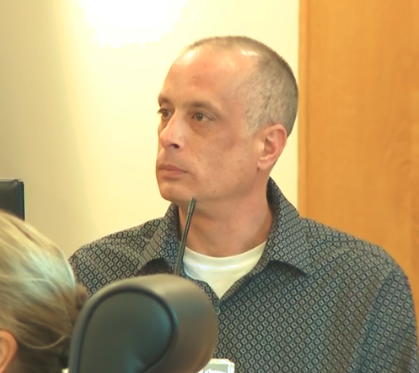Straight Talk
By Rep. MARJORIE PORTER, D-Hillsborough
Things have been hopping in Concord, and we’ve all been very busy. This term I am serving on the Municipal and County Government Committee, which always has a lot of bills to hear. Even though we Granite Staters talk a lot about how much we value local control, we are not a home rule state. Towns and cities can only do what the legislature has said they can. Needless to say, we have a lot of bills that ask for permission.
One case in point is HB 167, a bill to allow the town of Kingston to hold a bonfire to celebrate its 325th anniversary. This wasn’t just any old bonfire, though. If it was, Kingston could simply get a permit from its fire chief. No, this one had to be like the ones they used to have back in the day, built of railroad ties and topped with an automobile. I guess the fun is watching the car drop.
And that’s where the legislature had to get involved. A lot has changed since the last bonfire in Kingston. We’re not so keen on burning toxins now-a-days. The DES has a list of things we’re not allowed to burn, and creosote-soaked railroad ties and automobiles are both on that list. Without a special dispensation from the legislature, the bonfire wouldn’t be nearly as much fun.
They agreed to use untreated wood, and to strip the car down to just the frame and body—no seats, no tires, all fluids drained—and we gave them the green light. The party is in August. You might want to make the trip.
If that bill seems a bit frivolous to you, rest assured we deal with weightier issues too. It’s town meeting time, and budgets and property taxes are on all our minds. There are nine bills in our committee now that seek to reduce property taxes for the elderly, the poor, the disabled, and veterans. Bill sponsors made good arguments. People can’t afford the ever-increasing property tax. I’m not surprised.
Everyone knows New Hampshire has some of the highest property taxes in the country. According to Yahoo Finance, we rank third highest, right after New Jersey and Connecticut. Adjusted for inflation, our property taxes have gone up an average of 58% since 1999, according to Mark Fernald in the Aug 3, 2018 edition of NH Business Review.
But don’t be too hard on your local officials. They try their best to keep things running at the lowest cost possible.
When candidates for the State House run on a promise to “Cut taxes!” they are not talking about your local property taxes. They are talking about cuts to state taxes—more specifically, the Business Profits Tax (BPT) and the Business Enterprise Tax (BET). Under Republican control, the rates of both have been reduced several times over the last few years, with more reductions scheduled in the future. Businesses did not ask for these cuts, mind you. And of course, reducing these taxes also reduces the revenue coming into the state coffers.
Lower business taxes will make businesses flock to the state, the argument goes. That remains to be seen.
What does not come out in the argument is 70% of NH businesses are too small to pay the BPT, and only around half of all state businesses pay the smaller BET. The greatest benefit of these tax cuts goes to the largest and wealthiest of the state’s corporations, and many of them are headquartered out of state.
But, surprise of all surprises! What tax is it that almost all NH businesses, from the smallest to the largest, must pay? You guessed it! Local property taxes are the largest tax expense for New Hampshire businesses, by far.
When candidates for the State House run on a promise to “Cut Spending!” they mean that too. And a lot of the spending that has been cut in recent years is aid to cities and towns.
Consider: When the rooms and meals tax was first enacted, the state promised to share the revenue with cities and towns, 60-40. It’s been a very long time since the state has lived up to this promise. The split now is 79-21. It’s one way the state ‘lives within its means.”
When the state enacted the BPT in 1969, it promised to share the that revenue too. It did for a while. But in 2010, that sharing came to an abrupt halt. It has not resumed. The NH Municipal Association estimates the cumulative loss to municipalities to be $250 million.
And then there’s the state’s aid to cities and towns to help with their share of employees’ retirement costs. The state used to contribute 35%, but that was reduced to 30% in 2010, then to 25%, then finally eliminated altogether in 2011. The legislature under Speaker O’Brien was very proud of all the spending they cut that year. Municipalities were left holding the bag.
I could go on. School building aid frozen, school funding stabilization grants phased out, grants for improving and upgrading wastewater and drinking water treatment plants in moratorium. All downshifted to the local property tax payers—you and me.
No wonder we are groaning under the weight.
Voters in November told us they need relief. We listened.
There are a number of bills working their way through the House now, aimed at helping to reduce property taxes by sending more money back to towns and cities.
A group of bills in the Education and Ways and Means Committees deals with the school funding issue—reinstituting stabilization grants and reworking the adequacy grant formula to more accurately reflect the true cost of provide a quality education for our children. The interest and dividend tax is being reworked, to provide more money for school aid but also raising the cap under which no tax is due. Another bill, HB 497 restores state funding to help with the cost of municipalities’ share of retirement costs. I know there are others I’ve overlooked here. We’re trying.
My Republican colleagues love to tell you they will cut spending and cut your taxes, but that just doesn’t seem to hold water any more. Sure, the spending was cut, but my property taxes sure as heck ain’t lower.
So please don’t be so quick to believe their other mantra, that Democrats are going to tax and spend. We heard your concerns, and we’re working hard to reduce the biggest tax most of us pay—the property tax.
Many thanks to the NH Municipal Association for dates and figures used in this article.
Marjorie Porter is serving her fifth term in the NH House, representing the citizens of Antrim, Hillsborough, and Windsor. She currently serves as Deputy Majority Leader, and also sits on the Municipal and County Government Committee. She has two grown children of whom she is extremely proud. A retired teacher, Marjorie lives in Hillsborough with her husband and three cats.





